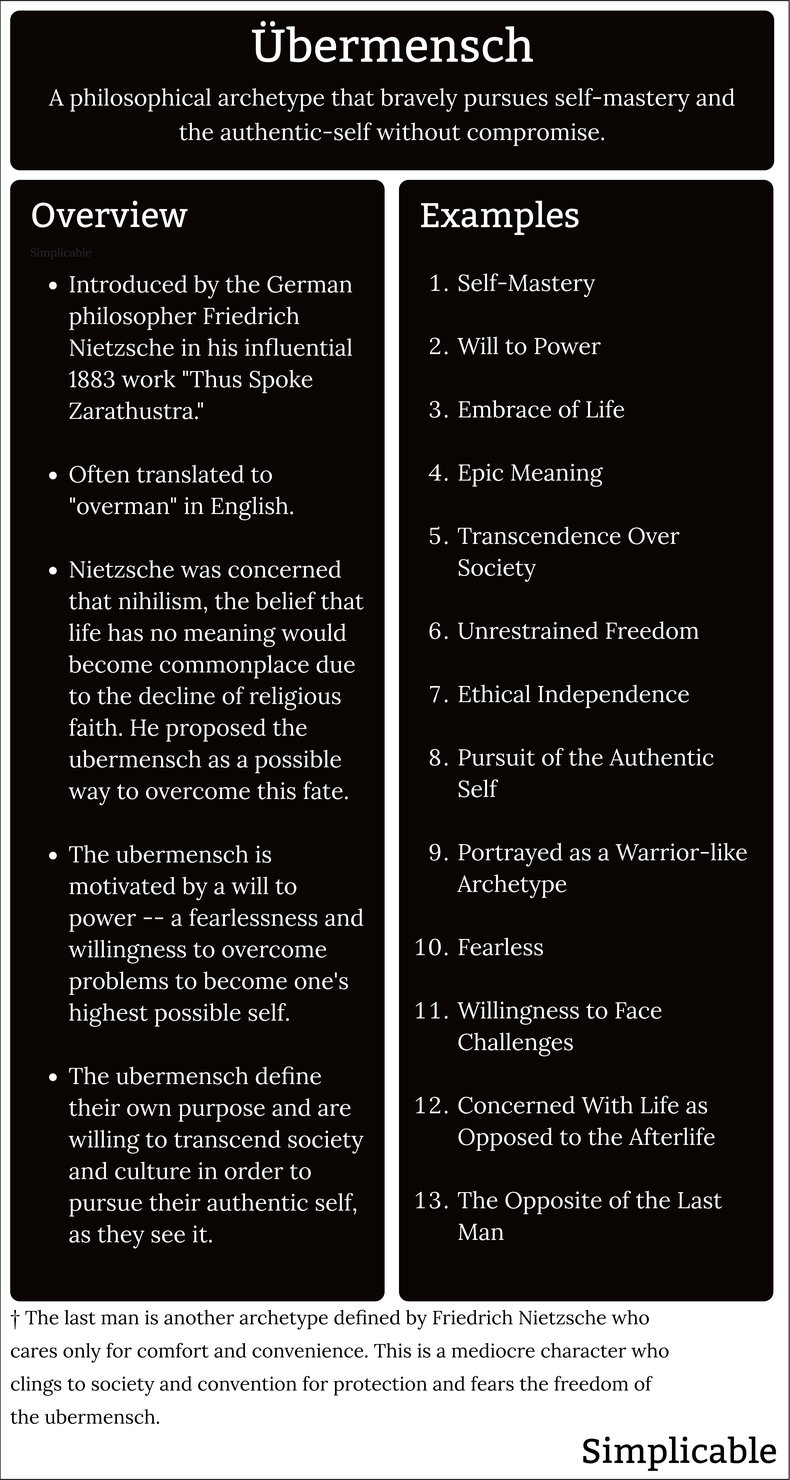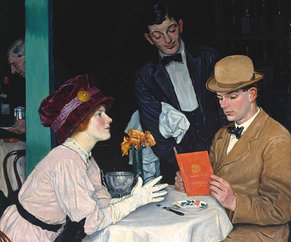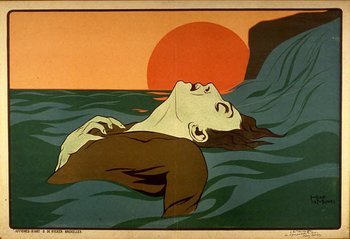The ideas below belong to Friedrich Nietzsche and do not represent the views of Simplicable or our writers.

Man is a rope,tied between beast and ubermensch - a rope over an abyss.~ Friedrich Nietzsche, Thus Spoke ZarathustraThe ubermensch, or superhuman, is a way of living proposed by philosopher Friedrich Nietzsche as a way to avoid nihilism, the belief that life has no meaning or value. The following are the basic characteristics of the ubermensch.
Embracing Life
God is dead. God remains dead. And we have killed him. How shall we comfort ourselves, the murderers of all murderers?~ Friedrich Nietzsche, The Gay ScienceMuch of Nietzsche's thinking is tied to the decline of religious belief that Nietzsche describes as the death of God. Nietzsche views religion as a rejection of life such that life is viewed as a terrible struggle with true rewards such as peace only being achieved in the afterlife. Nietzsche is concerned with what will fill this large void in values and purpose that religion once filled. The ubermensch is proposed by Nietzsche as a way to find a new moral path that celebrates life as opposed to rejecting it. An ubermensch embraces life's hardships and pleasures alike and accepts hard truths without complaint.
Will to Power
The higher man is distinguished from the lower by his fearlessness and his readiness to challenge misfortune.~ Friedrich Nietzsche, The Will to PowerThe ubermensch is motivated by a love of this world and of life. His will is life-affirming and creative. He is not guided by a rule book but instead seeks truth in himself and nature. The ubermensch has ambition and does not become tired or bitter in the face of hardship. He strives to become his highest possible self. Exactly what this means is left open by Nietzsche as the ubermensch finds his own direction. In other words, the ubermensch is a way of life as opposed to a system of values.
Comfort, Safety and Equality
Even yet man is more of an ape than any of the apes.~ Friedrich Nietzsche, Thus Spoke ZarathustraNietzsche fears that with the decline of religion, man is once again becoming animal with a way of life he refers to as the Last Man. The last man is the antithesis of the ubermensch. He seeks only comfort, consumption, security and risk minimization. The last man is deeply dissatisfied with life and is intensely jealous of the freedom, bravery and moral purpose of the ubermensch. He seeks to defeat the ubermensch in the name of equality by breaking down any distinction between the strong and weak or superior over the mediocre. A society of last men seek harmony, earn a living, keep warm and punish risk taking as an affront to equalness and safety.
Transcendence Over Society
A state, is called the coldest of all cold monsters. Coldly lieth it also; and this lie creepeth from its mouth: "I am the people."It is a lie! ~ Friedrich Nietzsche, Thus Spoke ZarathustraThe ubermensch is interested in people and in sharing his knowledge but is not interested in creating a system for everyone to follow. He considers himself independent and is not interested in the affairs of politics and social systems. He strives to become a better human.
Affirmation
If our soul has trembled with happiness and sounded like a harp string just once, all eternity was needed to produce this one event—and in this single moment of affirmation all eternity was called good, redeemed, justified and affirmed.— Friedrich Nietzsche, The Will to PowerThe ubermensch deals with pain and evil with the knowledge that a single life affirming moment can make it worthwhile.
Eternal Recurrence
WAS THAT life? Well! Once more!~ Friedrich Nietzsche, Thus Spoke ZarathustraNietzsche poses the possibility that all events in a person's life will happen again and again, infinitely. Faced with this possibility, the ubermensch is delighted. This can be contrasted with the Buddhist concept of Samsara that views life as a beginningless cycle of repeated birth, suffering and dying that is unsatisfactory and painful.
Achievement
To find everything profound — that is an inconvenient trait.~ Friedrich Nietzsche, Thus Spoke ZarathustraThe ubermensch has been misinterpreted as a biological transformation or superiority. Nietzsche was quite clear that this was not his intention. He was also clear that ubermensch strives to "supreme achievement" as opposed to any system of values whether they be idealistic, democratic or humanist. With no definition of what constitutes a supreme achievement the ubermensch is purposely left wide open by Nietzsche. It is a mistake to assign specific values to the ubermensch beyond a general embrace of bravery, life, love and belief in the potential of humanity.
Summary
The ubermensch is a fiercely independent archetype outlined in the works of 19th century German philosopher Friedrich Nietzsche. The ubermensch is brave, resilient and self-defining. They embrace life and are willing to transcend society and culture in order to pursue their own vision.
Discussion
Nietzsche is arguably the philosopher who most influenced the 20th century to the present day. He defined useful archetypes for the philosophical problems of the modern-era and was particularly concerned with the decline of religious faith and the fear that nihilism would replace it. Nihilism is represented by the last man who has no meaning or purpose but rather seeks only comfort, convenience and entertainment. This is termed "the last man" because Nietzsche views this as a regression to a barnyard state of existence.It is often supposed that Nietzsche promotes the ubermensch as an ideal way of living. However, it should be noted that Nietzsche appears to play Devil's advocate with his works and presents dramatic archetypes designed to make a point as opposed to the more simplistic notion that these archetypes are philosophies in themselves.The influence of the ubermensch on the 20th century can not be understated. For example, it is a philosophical foundation for relativism and the broad movement known as postmodernism in the social sciences.| Definition: Ubermensch | ||
Type | Philosophy | |
Definition (1) | An archetype of a character who is self-defining, brave, resilient, fiercely independent and passionate about achieving their highest self as they see it. | |
Definition (2) | A way of living proposed by philosopher Friedrich Nietzsche that embraces life, risk-taking and achievement of the self. | |
Also Known As | SuperhumanSupermanOverman | |
Opposite | The nemesis of the last man. | |
Related Concepts | ||































